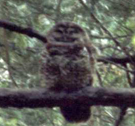Interview With Will Graves: Author, “Wolves in Russia: Anxiety Through The Ages”
Black Bear Blog, January 26, 2010 [here]
Below is an interview, moderated by Jim Beers, with Will Graves, author. It took place on January 24, 2010 in response to reports of cystic Hydatid disease from worms that have been reported in wolves in Idaho and Montana.
Jim Beers is a retired US Fish & Wildlife Service Wildlife Biologist, Special Agent, Refuge Manager, Wetlands Biologist, and Congressional Fellow.
Will Graves is author of Wolves in Russia: Anxiety Through the Ages [here]
~~~~~
Q: Will, didn’t you work and travel extensively in Asia, Europe, and Africa during your career with the US government?
A: Yes. I was very fortunate to visit and work with a variety of people in places such as Germany, Russia, Kazakhstan, Poland, Siberia, the Karellian Peninsula, Iran, Greece, Spain, Turkey, Ethiopia, Eritrea, and Italy to name a few.
Q: What did you learn about wolves based on your travels and work in these foreign lands?
A: First and foremost, that the management of wolves depends entirely on people and not on any so-called “balance of nature”. When management and control of wolf numbers and their distribution is absent, the damage to human life, livestock, domestic animals like dogs, and wildlife increases as wolf numbers and densities increase. Unlike other large predators, wolves are very adaptable, wide-ranging, pack animals that keep expanding their range both as individuals and as packs that expand as food and opportunities present themselves.
I was amazed at how little attention was being paid to both the visible danger of wolves and the hidden potential for the spread of diseases affecting people and other animals when wolves were being Re-introduced into Yellowstone Park in the 1990’s. The lack of discussion and preparation for controlling wolves and the absence of any candid description of historical and current wolf experiences and research worldwide struck me as a potential problem of great magnitude.
In addition to the substantiated deaths of many rural people especially in Russia, particularly children and women year around, outbreaks of wolf attacks on humans occur periodically in severe winters or when wolves become habituated to humans when they are not hunted as during World War II in Russia or when their numbers and densities increase with resulting losses of certain prey animals. They are particularly dangerous when they become increasingly bold around humans and human habitations. When wolves come into Russian villages or begin appearing at rural American school bus stops or when, as I was recently told by a Montana rancher, one came into his yard and actually looked in a window of his home, this is a very dangerous situation and almost certainly a prelude to an attack. While trying to chase off such animals is futile, removing such animals should be done immediately. However, this is merely a stopgap because other nearby wolves are likely to soon adopt similar behavior; when wolves exist routinely in such proximity to humans, history and research in Russia show this to be a dangerous situation requiring constant caution and constant control of the wolves.
Also in addition to the observable losses of cattle, sheep, domestic geese and turkeys, pet dogs, herding dogs, hunting dogs, watchdogs, and wildlife like deer, elk, and moose, there is the hidden damage from the stress of constant harassment of chasing and stalking all the surviving animals resulting in reduced physical capacities to survive and reproduce. This resulting stress leads to reduced resistance to disease and reduced weight and stamina that constitutes a significant loss to ranchers, farmers, hunters, rural residents and wildlife populations in my opinion. … [more]
by YPmule

Just received my copy of the book in the mail today!